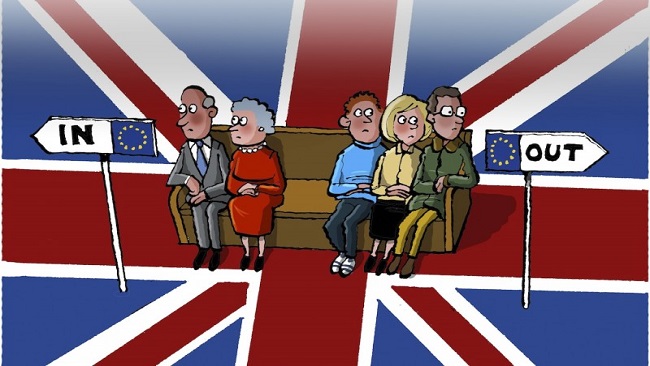EU, UK in talks to extend Brexit deadline
British and European officials are reportedly discussing a possible extension of the March 29 deadline for Britain’s exit from the European Union (EU), amid growing fears that a Brexit agreement clinched by Prime Minister Theresa May will be voted down in the UK parliament.
Despite the EU’s repeated warnings that a renegotiation of the deal was not an option, UK negotiators have been “putting out feelers” and “testing the waters” on an extension of the Lisbon Treaty’s Article 50, which acts as London’s formal notice for the divorce, The Daily Telegraph reported Tuesday, citing unnamed EU sources.
In June 2016, 52 percent of Britons partaking in an EU referendum voted in favor of Brexit while 48 percent opted for staying in the bloc. The vote forced former PM David Cameron to resign. May, Cameron’s then pro-EU Home Secretary, was elected the new PM and formally triggered the Article 50 on March 29, 2017.
Today, as the two-year deadline nears its end, the future of Brexit remains deeply uncertain. British lawmakers have indicated that May’s deal stands no chance to pass the House of Commons next week, when it finally comes up for a vote after a long delay by May.
BREXIT has served only as a mere diversion masking the true problems…
The premier postponed the original vote in early December out of fear she would lose over a controversial clause that concerns the future of the Irish border.
The deal’s opponents say the so-called “backstop” clause undermines the UK’s sovereignty because it effectively separates Northern Ireland from the mainland Britain.
The EU insists it should be able to include Northern Ireland in its customs union and move the border to the Irish Sea until a mechanism is found for bilateral trade.
May has warned lawmakers that she would push ahead with a no-deal Brexit if they reject her agreement with the EU.
The EU’s top court, the Court of Justice, ruled last month that London can unilaterally retract the Article 50 notice, raising hopes in the pro-EU camp for a second referendum to stop the divorce. May has ruled out that possibility.
A disorderly exit casts a shadow of uncertainty over the future of the world’s fifth-largest economy, something businesses and investors have long feared.
Up to £800bn in assets leave UK on Brexit fears
Those fears have already taken their toll on the British economy as consultancy firm Ernst & Young (EY) warned Monday that assets worth nearly £800 billion were being shifted from the UK to various EU financial hubs.
EY, which has been tracking Brexit plans of over 200 financial firms in the UK since the referendum, said in its latest update on Monday that 80 firms were considering or had already confirmed relocating assets and staff.
“The closer we get to 29 March without a deal, the more assets will be transferred and headcount hired locally or relocated,” said Omar Ali, UK financial services leader at EY.
While there has been little indication that the EU is willing to make major changes to the existing deal, reports emerged late Monday that the bloc was ready to help May get the vote by making “helpful noises” about the Irish border.
The vote is due to take place on Tuesday next week and sources within the Whitehall say the possible offer would come in writing and on the eve of the parliamentary vote. “The point is to have something with genuine meaning,” the BBC quoted an unnamed source as saying.
Another EU official told Reuters that while the bloc could offer some “reassurances” to help May, renegotiation was still out of question. “We can provide reassurances,” one official said, asserting that any reassurances would also “reiterate the conclusions” from the last month summit in Brussels, where EU leaders endorsed the deal.
Source: Presstv





